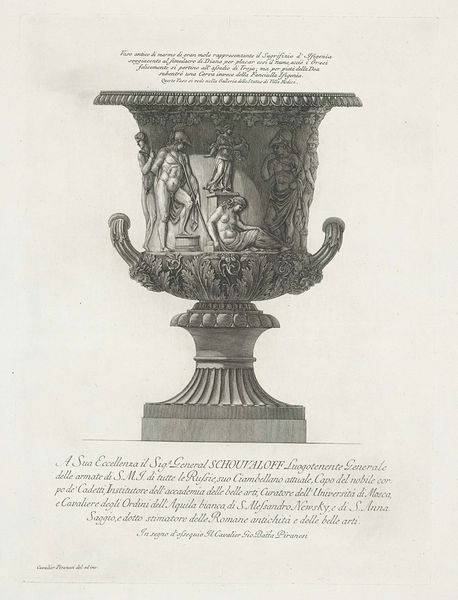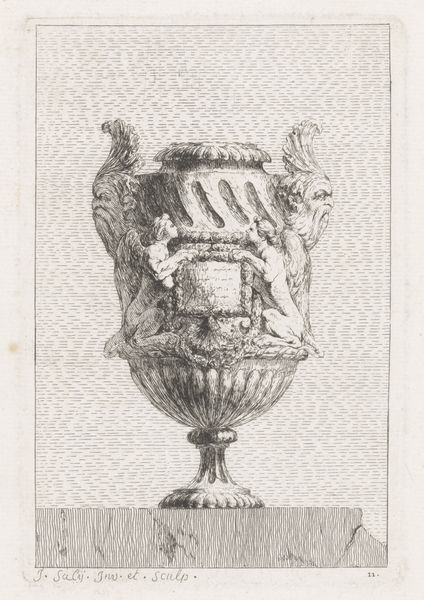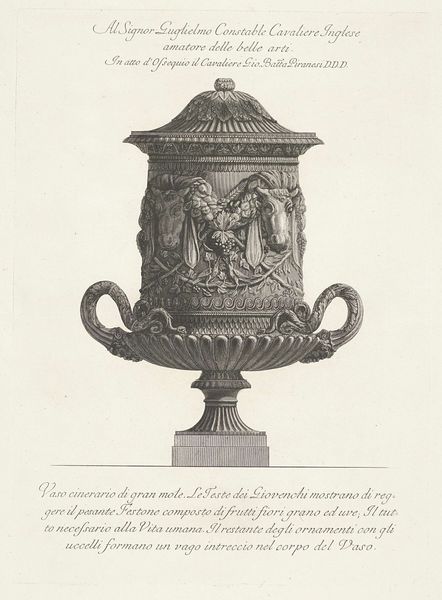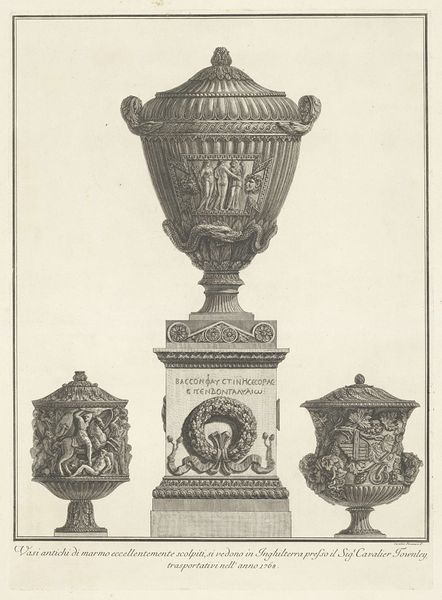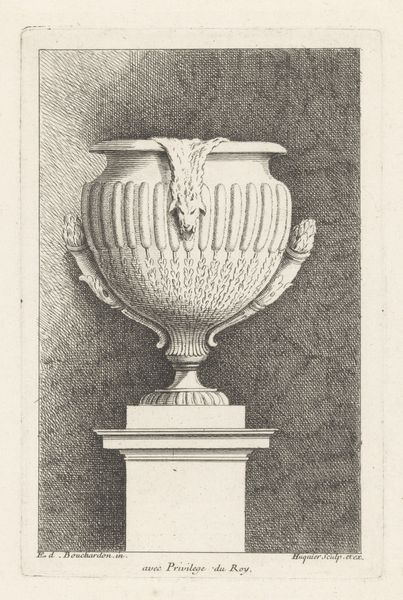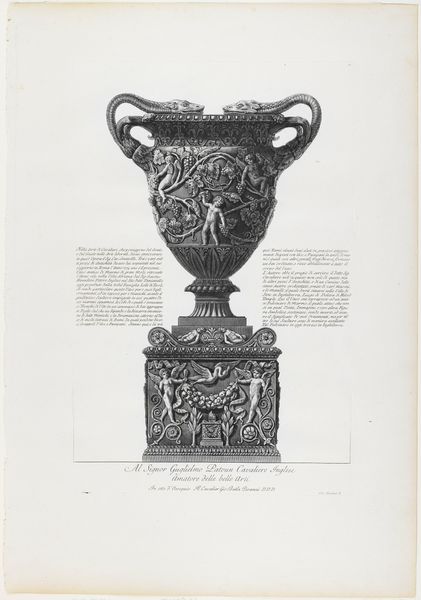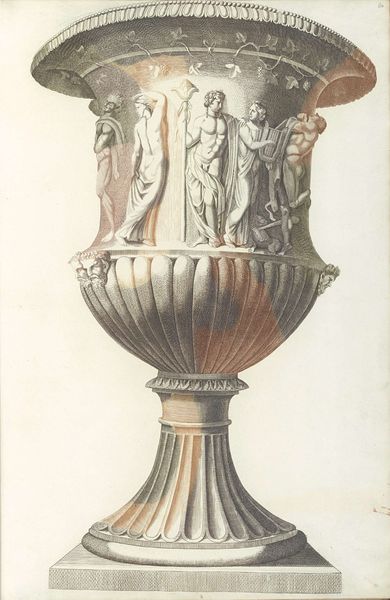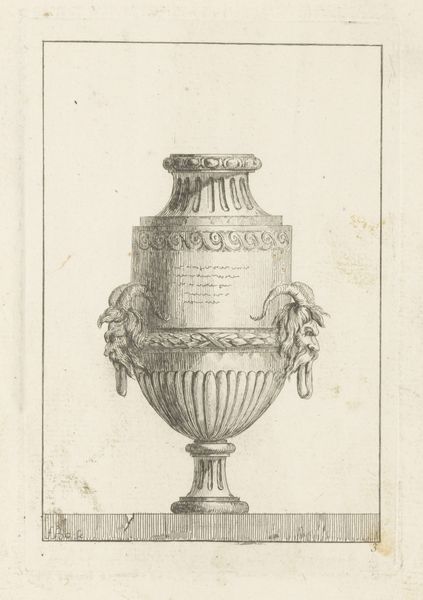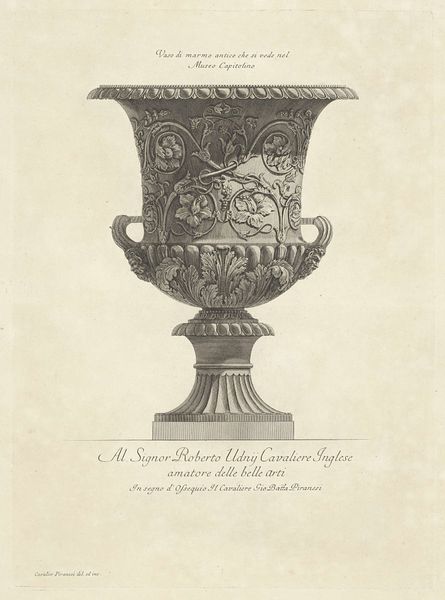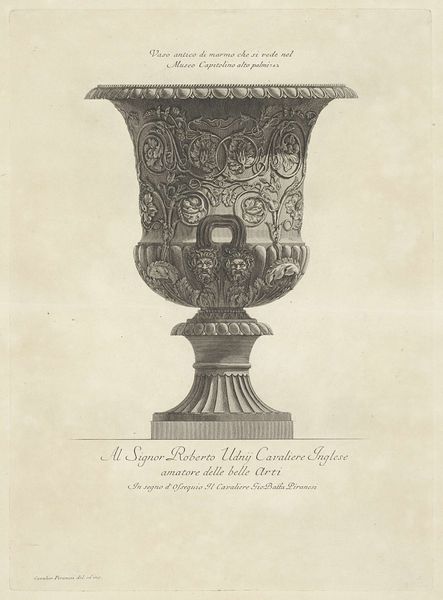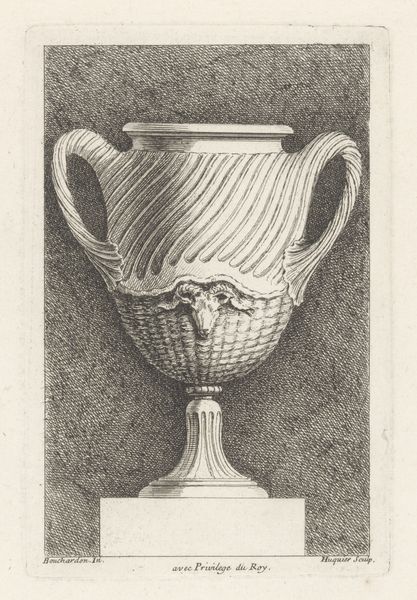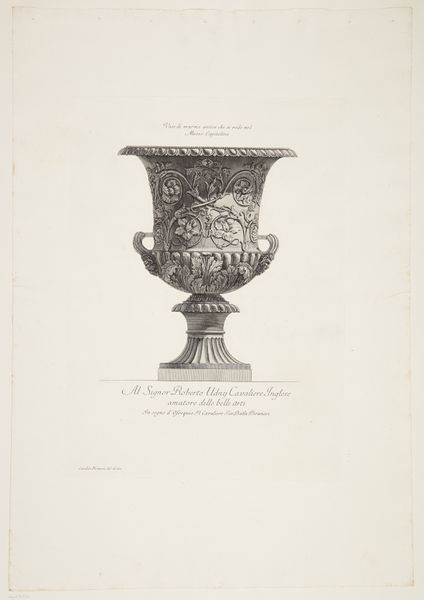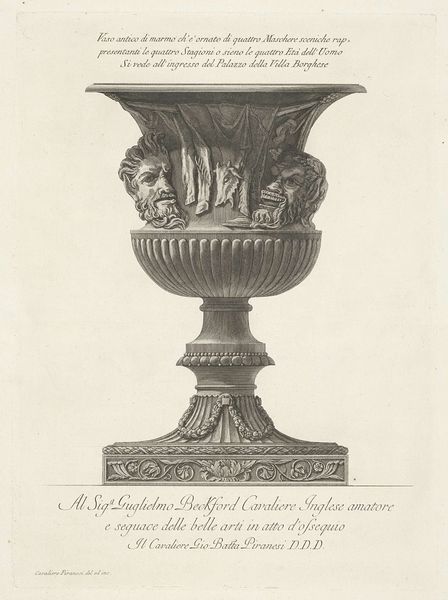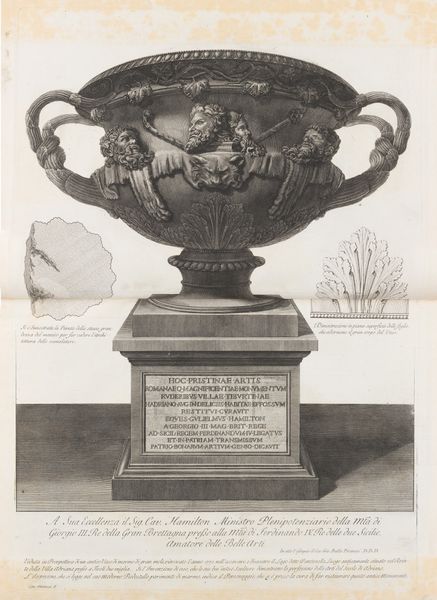
Dimensions: height 530 mm, width 388 mm
Copyright: Rijks Museum: Open Domain
Curator: Here we have "Vase with Bacchanalian Priests and Priestesses", an etching by Giovanni Battista Piranesi from 1778. The print depicts a large, ornate vase decorated with figures, classical in style. Editor: Immediately, I’m struck by the somber mood it evokes, despite the Bacchic theme. It's rendered in very precise lines, quite austere. There is a quiet energy, rather than something festive. Curator: Precisely. Bacchus, or Dionysus, the god of wine, theatre, and ecstasy, is usually associated with vibrant revelry. But Piranesi captures something deeper—the solemn rituals surrounding the deity. Note the figures sculpted around the vase: priests and priestesses engaged, we believe, in sacred dance. Editor: Yes, the vase feels like a relic or a stage for some eternal ritual. What’s interesting is that despite being a print, it possesses this weightiness. Like a stage frozen in time, under moonlight... And the vessel itself becomes the vehicle for stories from the past. A sacred history perhaps. Curator: These vessels, often marble, played a pivotal role in ancient Greek and Roman societies. Not merely functional objects, but embodiments of religious beliefs, status symbols and connection to history. It carries the resonance of cultural memory, echoing down the centuries. Editor: Makes you think what our everyday objects might reveal about our current rituals and values, centuries from now! Although, I must say, the seriousness, rather than hedonistic abandon, feels appropriate considering the tumultuous period in which this print was made. Pre-revolution... everything carried a certain… gravity. Curator: Absolutely, Giovanni Battista Piranesi masterfully weaves a visual tale steeped in symbolism. These weren’t innocent images. This is a commentary and reflection on continuity of tradition. It reflects the deep reverence held for cultural symbols from a classical age. Editor: Right. A melancholic acknowledgement. Perhaps it is that emotional paradox—reverence mingled with that melancholic feeling for what’s past and cannot be reclaimed—that grips me most. Thank you, it gives us a lot to think about. Curator: It offers, for me, a timeless meditation.
Comments
No comments
Be the first to comment and join the conversation on the ultimate creative platform.
